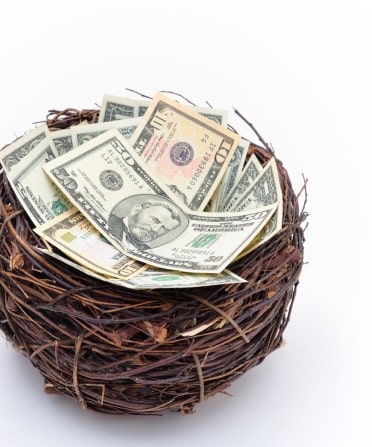How To Find And Buy A Rental Income Property: Steps And Tips
Real estate investors can benefit by knowing what to look for when buying a rental property. Buying a rental property requires doing the right due diligence to end up buying the right rental property investment. Additionally, you should have a realistic expectation about buying a rental property and being a landlord.
Step #1: Determine if Buying an Investment Rental Property Is Right for You
The first step to investing in rental properties is knowing if buying a rental property is the right move. The thought of rent payments sounds enticing. But, there is more to it than you might expect.
Once you purchase rental property you will have many responsibilities. This includes property maintenance, finding tenants, and maintaining tenants. If things go badly it is up to you to resolve the situation which could include legal action against the tenant including an eviction.
Though rent payments are great there are many variables which make the difference between being a profitable real estate investor vs. a landlord bogged down with issues. Before buying an income property make sure you are ready to handle the responsibility of being a landlord.
Step #2: Pay Down Personal Debt

Before buying a property to rent you should focus on reducing your own personal debt. If you have low loan indebtedness in other areas of your life you can be a more versatile rental owner. You will not be undercapitalized to deal with repair issues at the property or an extended period of vacancy. Additionally, loan qualification standards are typically more stringent for investment property.
The number one cause for business failure is being undercapitalized. Owning rental investment property can be capital intensive. Pay down personal debt before buying a rental property.
Step #3: Find the Right Location
We have all heard real estate is about location, location, location. The second most common mistake when investing in rental properties is buying a property in the wrong location.
When buying and renting properties the best place to purchase a rental property is in an area that is experiencing economic expansion. Areas undergoing economic expansion will allow you to regularly increase the rent. Economic expansion does not simply mean the mayor announced a new factory. It’s more than that.
High Student Housing Needs
Areas near colleges and universities can be a great place to make a rental property investment. Renters will be there for a period of time, the property will turnover, and new renters will come in. This continual cycle gives the opportunity to increase the rent rate.
Proximity To Jobs
If you want your tenants to pay rent, they’re going to need jobs. Do not get caught up on the announcement of a single employer or factory opening in an area as a sign there will be paying tenants. That is too speculative.
Instead, look at cities, towns, or neighborhoods in larger metro areas where there is a nice mix of employers. You want a balance. A great sign is an area where lots of smaller businesses are opening. Knowing other business owners are making a bet on the area is a sign to begin investing in rental properties in the area.
New Construction Rental Units
Cities, towns, or neighborhoods in metro areas with new rental units under construction are excellent places to consider buying a house for investment. A company spending millions to develop a new rental complex is a sign the area is underserved. New units charge top dollar. Owners of lower cost properties will likely be able to increase their rent payments.
An Area Next To Another Area That Is Overpriced
Look for a city or town that is near another city or town which has recently undergone major rent price increases. Buying a rental property in the next town over can be a big win. As tenants get priced out of one city they will move on to the next.
Low Crime Rates
Focusing your rental property investment in a low crime area is always a good idea. No one wants to live in a dangerous place and worry about becoming a crime victim. People will always want lower crime rates vs. higher crime rates and will pay higher rent payments to live somewhere safe.
Step #4: Study Your Selected Market in Detail

I know we just talked about location. Once you have decided on the market where you want to begin buying rental property take another look. Evaluating the area to know whether or not it is worthwhile investing in rental properties in the area is a good idea. You want to get answers to questions including:
- Is the population shrinking or growing?
- Are the schools performing better or worse?
- Are wages rising or falling?
- Are businesses opening or closing?
- Will property taxes increasing or decreasing?
- Is the crime rate rising or falling?
- Will rent rates increasing or decreasing?
- What is the appreciation rate of real estate like what you are considering to purchase?
Step #5: Use Different Sources for Your Property Search
When trying to figure out how to find a rental property I encourage real estate investors to use multiple sources. Real estate websites are a great resource to see what is listed in your region’s MLS. Engaging with a real estate agent is another good idea, too.
Other sources to find rental property include foreclosure lists and tax sales. Make sure to you understand how tax sales work in your state.
Another option to find rental property for sale is bird-dogging situations. Look for homes which may be abandoned or forgotten. A pile of newspapers at the door or grass that is over a foot tall are good indications a home is not lived in. Just look as you are going about your daily business. Send a letter to these addresses and see if you can get a response.
Other rental property investors are another source to find rental property. Real estate investors eventually decide to start off-loading their portfolio. Join a local real estate investor group. There, you will meet other investors.
Lastly, don’t ignore for sale by owners. They are sellers, too.
Step #6: Carefully Analyze A Few Properties
The next step to being successful in rental property investment is to establish your financial performance metrics. This typically includes the rate of return on cash, cash flow, and cap rate. Some investors are all about cap rate. Others are focused on cash flow. I am interested in how long it takes to get my money back.
Always assess whether or not buying a property to rent will meet your financial goals. When analyzing a property, stay realistic. Place realistic figures for the costs of the property and rent payments. Do not forget about all of the possible expenses which can include:
- Mortgage repayment (if you have a mortgage)
- Property taxes
- Property insurance
- Lawn care and snow removal
- Trash
- Utilities
- Maintenance
- Vacancy
- Administrative (legal, accounting, etc.)
Step #7: Should You Buy Or Finance?

When investing in rental properties you will need to decide whether it is better to purchase a property out-right using cash or to go in debt with a mortgage. Let’s look at how each of these works to help you better understand the differences.
Paying Cash For Rental Properties
Few investors can purchase a rental property outright. But, if you can it is a great position to be in. When paying cash for a home 100% of the rental income is profit after paying expenses and taxes. Also, you need not fear the inability to cover the large costs of a mortgage.
Financing Rental Property
For those of you who want to know how to buy rental property with a mortgage for rental property this will help. When getting a mortgage to purchase a property there are a few ways to go about it. First, you need to get qualified for an investment property mortgage. Once approved, you need to decide how frequently you want to acquire another property.
You may be able to get qualified for multiple mortgages. I call this stacking. You buy property A, B, and C and each has its own mortgage. Or, you may prefer to focus both your rental income and personal income on paying off your first acquisition before acquiring your second property.
How To Get A Mortgage For Rental Property
Start the process of getting a rental property mortgage by contacting a mortgage broker. If your bank has a mortgage department they can help you, too.
Qualifying for rental property loans can be more stringent than applying for a primary residence mortgage. Credit requirements can be higher. Also, you will typically be required to make a 20% or even a 25% down payment. Your debt-to-income ratios will also need to be within the qualifying range.
Sometimes the rental property mortgage lender can count the rent to offset debt-to-income ratios. This is more common if the property is already a rental, and the seller has documented the property’s financial performance.
Step #8: Know Your Legal Obligations
As a rental owner or landlord you need to know the law. Most states have rental law and tenant’s rights which must be followed. Some counties or cities may even have more laws or regulations in addition to what exists at the state level.
Do not let yourself get caught up in a legal situation. As you begin your rental business, get familiar with rental law in your area. You can do this by educating yourself online. The best option is to hire an attorney to help you set up your rental business.
A real estate attorney can help you in many ways. The attorney can help you structure your business. Additionally, the attorney can help you with writing a rental agreement or lease for your tenants. Attorneys can also be helpful with addressing tenant issues or evictions.
Step #9: Hire a Real Estate Agent

Contact a real estate agent to help you find and buy a rental property investment. Real estate agents are the people in your community who are the most familiar with real estate trends.
Real estate agents have access to some of the best tools to assess the potential profitability of a property. A local real estate agent will also have an understanding of fair values for properties, current rent rates, and know the process of buying a rental property.
When hiring a real estate agent to help you acquire rental properties look for an agent with experience in this area. Ask an agent about his or her experience helping investors with buying a house for investment. Learn about the agent’s track record specific to investment property real estate.
Step #10: Use Professional Property Management
If you are looking for a 99% hands off situation consider hiring a property management company. Property management companies take care of the day-to-day operations at your rental property. This can include finding and qualifying tenants, collecting rent, maintaining the property, and addressing emergencies at the property.
A property management company will come at a cost. Be prepared to pay one month’s rent at the time of placing a new tenant in a property. Also, the management company will likely charge 8% to 15% of the monthly rent.
Some More Property Investment Tips

There are a lot of other important items to consider when starting out owning rental real estate properties. These tips can help you avoid issues and protect your rental income profits.
Beware Of High Interest Rates
High interest rates will eat into your rental income profits quickly. Avoid using high interest loans in order to purchase properties. This is most common with hard money lenders. If you are needing to borrow that much money maybe it is better to wait to buy rental real estate properties.
Calculate Your Margins
Calculating rental property margins is relatively easy. It is your rent rate minus expenses. Expenses include loan repayment if you have a loan, insurance, property taxes, maintenance, lawn care & snow removal, trash service, utilities, and administrative costs such as tenant placement and move-out, legal, and accounting costs. The remainder is your monthly cash flow. Annualize this to find your return on investment.
Invest In Landlord Insurance
Insure your rental property investment. Work with a major property insurance provider. Make it very clear to the insurer this is an investment property and not your primary residence. Doing anything else is a reckless act with your investment.
Remember to Renew Your Leases
Renew your leases with your tenants. So often I have seen properties for sale with tenants in place with no leases. This really hurts the property. Also, while owning the property wouldn’t you like your tenants under some obligation? Always send the tenant a lease ahead of time.
Save Your Receipts For Taxes

When you own a rental real estate you get to deduct the cost of everything related to owning and operating that property from your gross rental income. From repainting to the home to changing out a mailbox, it is all deductible. Save your receipts and keep them organized to make your life easier and more profitable.
Budget for the Unexpected
When I run the numbers on a possible acquisition I always account for 10% of the rent to be used for maintenance or repairs. Things will break. Build up a nest egg to accommodate these things.
Buy A Low-Cost Home
Start small with a home that is affordable and will get rented. There is no need to reach for the upper ends of the market. The audience of renters in an area willing to pay $2,500 per month rent in an area of median household income of $60,000 is low. Start small.
Raise That Rent
Raise the rent annually. I have seen so many landlords selling properties in poor repair after owning it for years. The property is in such bad shape because the last tenant “was there forever and always paid.” Of course they did because they were paying 40% below the market area rate. Take care of your properties and raise the rent regularly.
Is Buying A Condo A Good Investment?
I discourage real estate investors from purchasing a condo as a rental property. This is because there is too much risk that the condo association will disallow you renting out the property at some time. The collective of owners can easily outvoice a single owner.
Conclusion
Buying a rental real estate properties is a process. You need to start thinking like a business owner because that is who you are. And, you need to keep an eye on the profit.
Carefully select the right areas to purchase rental real estate. Make sure that you are adequately capitalized before starting. Also, utilize the professionals around you including real estate agents, attorneys, and tax professionals to help you build your business.
Here at the Quadwalls Real Estate Team we have experience helping landlords buy and sell Indiana rental real estate properties. This includes helping new real estate investors and helping them become profitable with their first investment.
The first step is to tell us what you are looking for. You can do this by completing the Quadwalls HomeFinder Assistant. It’s free, 100% online, and just takes about 3 minutes. Click here to complete the Quadwalls HomeFinder Assistant today!
FAQ
Should I Find a Real Estate Investing Partner?
I encourage real estate investors to go it alone. There are professional service providers that can provide you the expert assistance you need such as real estate agents, lawyers, accountants, and property management firms. Unless the partner is an expert in one of these areas there is no point the partner is not bringing anything to the table.
 Updated: March 29, 2023
Updated: March 29, 2023  248
248  15 min
15 min











